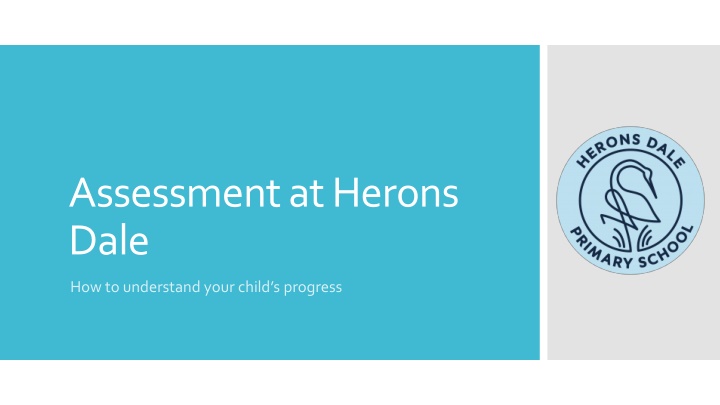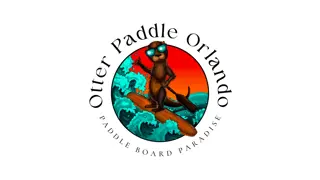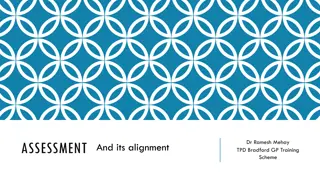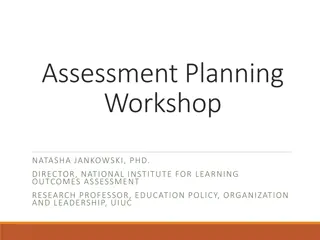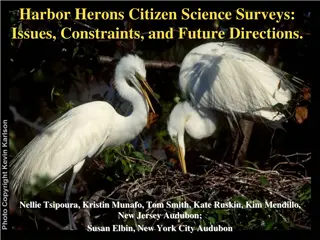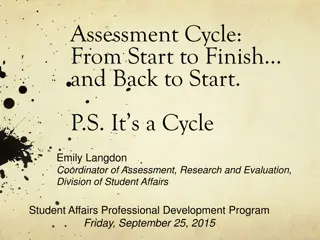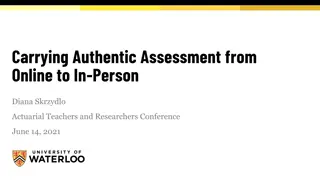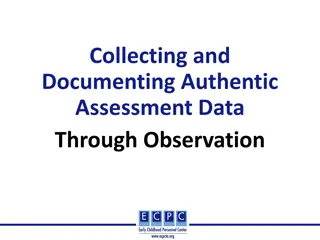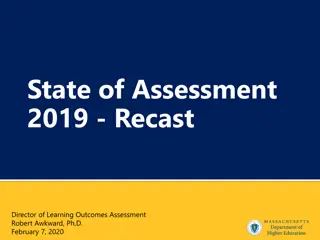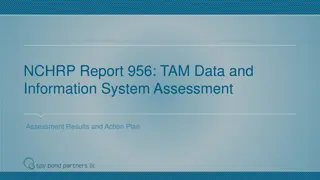Assessment at Herons Dale
Uncover ways to evaluate your child's development at Herons Dale, enabling you to comprehend their growth and address any challenges effectively. Explore methods for tracking progress and fostering a supportive environment to enhance your child's learning journey.
Download Presentation

Please find below an Image/Link to download the presentation.
The content on the website is provided AS IS for your information and personal use only. It may not be sold, licensed, or shared on other websites without obtaining consent from the author.If you encounter any issues during the download, it is possible that the publisher has removed the file from their server.
You are allowed to download the files provided on this website for personal or commercial use, subject to the condition that they are used lawfully. All files are the property of their respective owners.
The content on the website is provided AS IS for your information and personal use only. It may not be sold, licensed, or shared on other websites without obtaining consent from the author.
E N D
Presentation Transcript
Assessment at Herons Dale How to understand your child s progress
Over the past two years we have been working with our federated partner school Palatine Primary School to build an assessment software that is bespoke and individualised for our pupils. This software is called 'One Stop Shop , or OSS . Teachers will use One Stop Shop to track the progress your child makes, based on evidence of learning collected in class. One Stop Shop This might be written work from formal lessons, watching the children learn and play, communication and interaction work, or other areas of our curriculum.
The assessment statements are gathered from a range of sources, including (but not limited to): Early Years Foundation Stage Development Matters; West Sussex Key Milestones; One Stop Shop National Curriculum Pre-Key Stage and end of Key Stage Standards; Other similar curriculums e.g. ImPACTS, Equals
Your child's teacher regularly checks your child's evidence against each of these statements, and decides which of the following descriptors match your child's current learning: Explored, Attended To, Prompted, Unaided, Mastered. One Stop Shop When the teacher selects the appropriate descriptor for a statement, it changes colour and gives your child a number of 'points'. These points add up to make the point systems you will see on your child's reports. Your child's teacher and senior management also use this system to monitor progress.
One Stop Shop Above: an example of the colour coded statements that teachers assess against. The points awarded from these statements are added and recorded to contribute to tracking your child's progress.
One Stop Shop EYFS & National Curriculum Pre Pre-key stage 1 EYFS stage 1-3 Pre-key stage 1 EYFS stage 4 Pre-key stage 2 EYFS stage 5 OSS and EYFS & National Curriculum for Core subjects Pre-key stage 3 EYFS stage 5-6 Pre-key stage 4 EYFS stage 5-6, Early Learning Goal (ELG) and Exceeding the ELG. Pre-key stage 5 Working towards the expected standard KS1 Pre-key stage 6 Working at the expected standard KS1 Pre-key stage 7 Working towards the expected standard KS2 Pre-key stage 8 Working at the expected standard KS2
Your childs teacher will meet with a member of the senior leadership team termly to discuss the progress your child is making. They talk through each area of learning and discuss the teacher s judgement thoroughly. Each area of learning is reviewed against these descriptors : Better than expected progress Expected progress Below expected progress (See next page for more information) Different learners have different expectations made of them for what good progress is, dependent on their needs and abilities. These expectations are agreed with senior management. For this reason, it is important not to compare your own child s points with another s. Progress Meetings Progress meetings occur each term to check your child s progress and evaluate what is and is not working for them. If your child is not making intended progress then the team will put together actions to help the child move forward. From Autumn term 2020 we will be sharing your child s progress descriptors in each area of learning with you at Parent Consultations so you can get a sense of how they are doing along with other discussions that take place. You can also see these on our website.
Herons Dale progress meeting descriptors At the moment we are working on recovery curriculum progress descriptors which can be found on the website. These are separated into our cohorts of children (Formal, Semi-Formal and Engaging). If you are unsure what cohort your child is in please ask your child's teacher.
For children in years 1-6 working below the expected key stage, at the end of the year we must report to West Sussex County Council what Pre Key Stage your child is working at. The standards are from 1-4 in KS1 and 1-6 in KS2. These can be found on the Government Department for Education website. End of year assessments: Statutory Pre Key Stage Standards In line with government expectations, teachers can only report a standard if your child has met every statement. E.g. a child can only progress to Pre Key Stage Standard 2 if they have met every statement in Pre Key Stage Standard 1. At Herons Dale this is not something we rigidly focus on; it is a statutory government instruction. These standards are built into our OSS assessment software and whilst they may guide our teaching and assessment, we have collected a broader range of statements to better demonstrate the progress our children make. (For children in reception, please continue reading).
The Early Years Development Matters Statements and Early Learning Goals are also built into our OSS system. Early Years teachers assess statements within a best fit appropach taking into account your child s strengths, abilities and disabilities. OSS records these asssessments as points and colours in line with the rest of the school. This informs teachers planning, progress meetings and the reports we create for parents. At the end of the academic year we must inform County whether your child is making Emerging, Expected, or Exceeding progress against the Early Learning Goals a nationwide assessment tool for all reception children. These goals describe the attainment of all children in reception, whether in mainstream or special education. Early Years (reception) Again, at Herons Dale this is not something we rigidly focus on; it is merely a statutory government instruction. These standards may guide our teaching and assessment, but we have collected a broader range of statements to better demonstrate the progress our children make. In September 2021 our software will be updated to reflect the revised Early Years Profile.
The Engagement Model is for those children who are not engaged in subject specific study. They will work on the following skills; Exploration, Realization, Anticipation, Persistence and Initiation. It is designed to work alongside our OSS system. Engagement Model How we record and monitor progress for these children is a working project and has been delayed due to Covid-19. In the meantime we will be continuing to use our current systems. For those children working below subject-specific study
Non-SEN Assessment at Herons Dale Year 1-6 entry EYFS EYFS PKS 1 PKS 2 Comparisons to mainstream cohorts PKS 3 PKS4 PKS 5 (working towards expected standard KS1) End of Key Stage 1 (Age 7) PKS 6 (working at expected standard KS1) PKS 7 (working towards expected standard KS2) End of Key Stage 2 (Age 11) PKS 8 (working at expected standard KS2)
Progress meetings will show expected or better than expected progress. These will be reported to you in Parent Consultations. How to know when your child is making good progress: a summary Conversations and written communication with teaching staff may cover what is working well and what our next steps are in Home School Books, Parent Consultations, and in Annual Review, MAP & PATH meetings. End of Year reports will show what targets have been set and what has been achieved in following the progress descriptors (below, expected or exceeding).
If you have any questions or concerns please dont hesitate to contact the assessment lead Meg. Questions or Concerns? megan.palmer@heronsdale.co.uk
